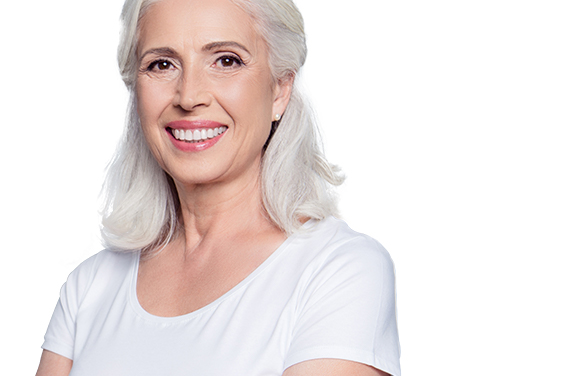TMJ Dentist Specialist Sydney
Do you suffer from chronic and persistent headaches? Your medical symptom could be due to a dental condition.
- Temporomandibular joint disorder
- Temporomandibular disorder
- TMJ
Through treating your TMD the aim is to alleviate pain and restore function to your jaw. A custom-made appliance may help to ease headaches and treat sleep apnoea.

What is TMD?
If you suffer from persistent headaches or back, neck and shoulder pain, it is possible you may have TMD. This condition known as Temporomandibular Joint Dysfunction (TMD) affects the temporomandibular joint (TMJ) which is located just in front of the ear. When this joint does not function properly it can cause a wide range of other issues in the body, which are often passed off as simplistic symptoms. In this case, you must contact Prof Jim TMJ specialist in Sydney.
“Every patient comes in with the expectation that you’re going to fix the problem. However, you’re not going to fix it in isolation, you look at the whole picture”
Professor Jim Ironside
What causes TMD?
TMD is often caused by malocclusion which can be in the form of overbites, under bites or cross bites. Malocclusions (depending on their complexity) can take some time to solve, however Professor Ironside will assess your condition and give you an estimated treatment duration based on your individual needs.
What are the symptoms of TMD?
TMD can be difficult to diagnose because of the variety of its symptoms. Fortunately, Professor Jim Ironside knows what to look for when patients come to him for help. Correct diagnosis is the first step to helping you alleviate your symptoms by treating the source of your pain.
The symptoms of TMD can include one or more of the following:
- Headaches or migraines
- Jaw pain
- Clicking in the jaw
- Facial pain
- Sensitive or sore teeth
- Back, neck and shoulder pain
- Ringing in the ears
- Dizziness
TMD and sleep apnoea
Sleep apnoea refers to obstructive sleep often caused by throat muscles relaxing and restricting the airways. As a result, a sufferer is forced awake by the brain to start breathing again. This causes repeatedly interrupted sleep.
If you’re suffering from sleep apnoea, a visit to Professor Ironside’s practice might help. Studies have revealed correction of the malocclusion can relieve sleep apnoea.
Read more about a dental solution to sleep apnoea.
Ask a question or
book your consultation
Please fill in the online enquiry form to ask a question or book your consultation. Professor Ironside looks forward to seeing you soon.
People are also looking at:

Frequently asked questions about TMD
What is TMD?
TMD (Temporomandibular Joint Dysfunction) identifies a misalignment in the jaw joint.
When the temporomandibular joint (the joint that is located just in front of the ears) is not functioning properly it can cause a wide range of issues such as headaches, jaw pain and malocclusion (misaligned bite).
As the body is all connected, this misalignment can negatively affect other parts of the body. This condition is often misdiagnosed as its symptoms can be put down to stress, random headaches, etc.
Professor Ironside knows what to look for in TMD and will conduct a thorough assessment to correctly identify this issue.
What are the symptoms of TMD?
Many symptoms of TMD are easily ignored, however if you suffer from the following it is important to have your TMJ (temporomandibular joint) assessed
Some of these symptoms include headaches, migraines, jaw pain, clicking in the jaw, facial pain, sensitive or sore teeth, pain in the neck, shoulders and back, ringing in the ears and dizziness.
In severe cases TMD can limit the foods that you can eat, decrease the amount you can open your mouth and interfere with daily activities.
Can any prosthodontist diagnose TMJ/TMD?
For the best possible diagnosis and medical treatment, we recommend you consult a qualified prosthodontist like Professor Ironside, who has a thorough understanding of TMD. Professor Ironside can provide you with the correct diagnosis for more effective treatment and alleviation of painful symptoms.
Can TMJ/TMD cause cancer?
Even though TMJ disorder is at times associated with jaw or salivary cancer, for instance, TMJ disorder has not been directly linked to cancer.
Can TMJ/TMD be cured without surgery?
In some cases, yes, there are non-surgical treatments for treating TMD such as mouthpieces and Transcutaneous Electrical Nerve Stimulation (TENS). However, it is best to consult a professional TMJ specialist in Sydney or anywhere near you as treatment options depend on the severity of your condition.
How do you diagnose TMD disorder?
A prosthodontist assesses TMD by considering your medical history and conducting a physical examination of the jaw, muscles, and bite. They may refer you to a specialist for complex cases. TMD diagnosis often involves a multidisciplinary approach. If you suspect you have TMD or experience jaw pain or dysfunction, seek an evaluation from a qualified dental or medical professional who specialises in TMD or oral and maxillofacial disorders. They can provide accurate diagnoses and personalised treatment options.
What happens if TMD is left untreated?
If TMD is left untreated, it can cause chronic pain, restricted jaw movement, teeth grinding, ear problems, headaches, and emotional impact. Early diagnosis and treatment are important to avoid complications.
What conditions are associated with TMD?
TMD can be linked to various factors, including jaw trauma, bruxism (teeth grinding), misalignment of teeth (malocclusion), arthritis, stress, connective tissue disorders, muscle issues, hormonal influences, sleep disturbances, and chronic stress/anxiety.
Can TMD be caused by teeth grinding or clenching?
Yes, teeth grinding (bruxism) and clenching can contribute to the development or worsening of TMD. The excessive pressure and strain placed on the temporomandibular joint (TMJ) during these activities can lead to inflammation, muscle tension, and joint misalignment, all of which are associated with TMD symptoms. Managing bruxism through techniques like stress reduction, wearing a mouthguard at night, and addressing underlying dental issues can help alleviate TMD symptoms in some cases.
Can TMD be prevented?
While it’s challenging to completely prevent temporomandibular joint dysfunction (TMD), certain measures can reduce its likelihood or severity. Maintaining good posture, avoiding excessive jaw movements, managing stress, and staying hydrated can help. Additionally, limiting hard or chewy foods, using a mouthguard if you grind or clench your teeth, and seeking prompt treatment for any TMD symptoms can all contribute to prevention. These steps aim to reduce strain on the jaw muscles and joints, potentially minimising the risk of developing TMD or alleviating its impact if it occurs.
Is surgery ever necessary for TMD treatment?
Surgery is typically considered a last resort for treating TMD and is only recommended when conservative treatments have not been effective and the symptoms are severe and significantly impacting the quality of life. Surgical options for TMD may include arthrocentesis (a minimally invasive procedure to flush out the joint), arthroscopy (inserting a small camera into the joint to assess and treat the problem), or open-joint surgery (more invasive surgery to repair or replace the joint). These surgeries are aimed at correcting structural issues within the temporomandibular joint (TMJ) to alleviate pain and restore function. However, because surgery carries risks and may not always provide long-term relief, it is typically considered only after other options have been exhausted.